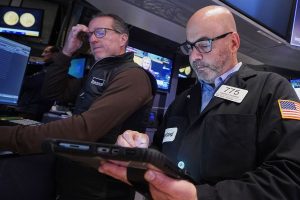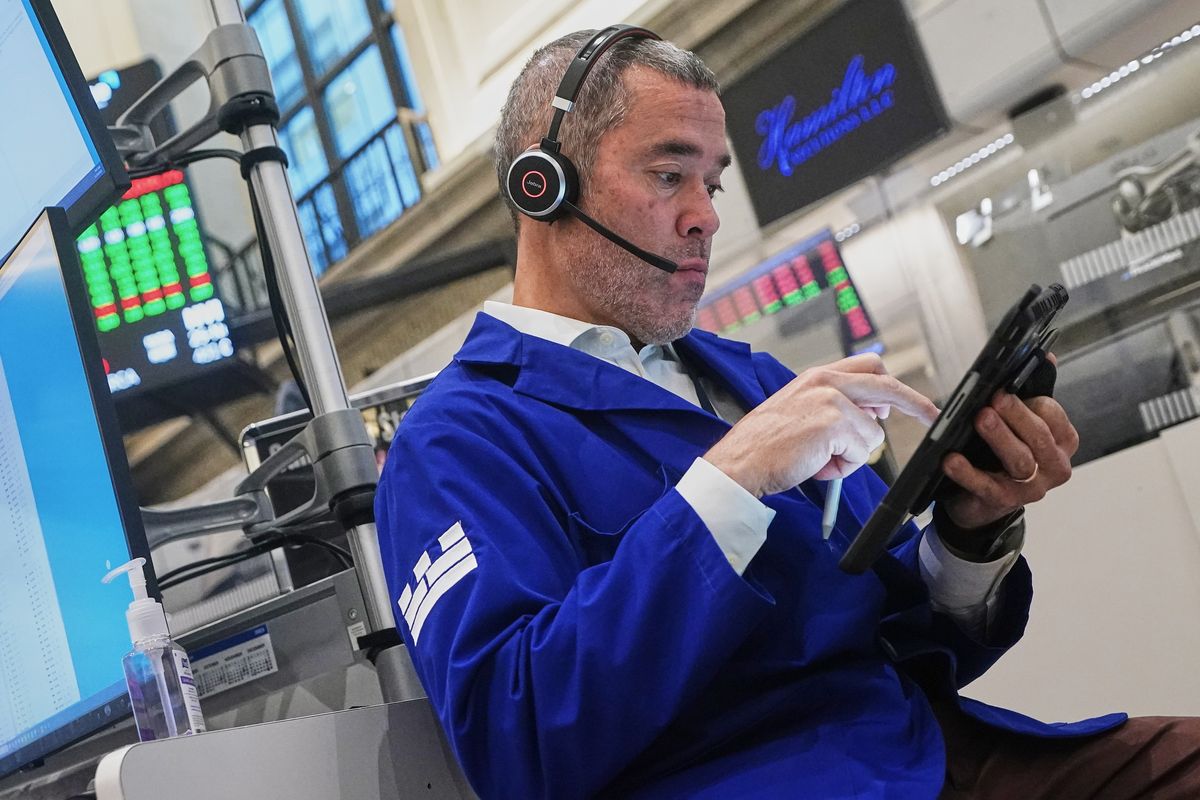NEW YORK (AP) — The U.S. stock market swung through another unsettled day of trading on Wednesday, ahead of a couple of crucial tests for Wall Street.
The S&P 500 rose 0.4% after veering between a small loss and a leap of 1.1% earlier in the day. That broke a four-day losing streak, the longest in nearly three months for the index, which has been shaking because of worries that stock prices have shot too high and that the Federal Reserve may not deliver as many cuts to interest rates as expected.
The Dow Jones Industrial Average added 47 points, or 0.1%, and the Nasdaq composite climbed 0.6%.
Constellation Energy led the market and rallied 5.3% after the U.S. Department of Energy said it’s lending $1 billion to help restart Constellation’s nuclear power plant at Three Mile Island. Lowe’s rose 4% after the home-improvement retailer reported a stronger profit for the summer than analysts expected.
They helped offset a 2.8% drop for Target, which reported weaker revenue for the latest quarter than analysts expected. The retailer also hinted that challenges may continue through the critical holiday shopping season.
The market’s focus, though, remained on Nvidia. Wall Street’s most influential stock climbed 2.8% as traders made their final moves ahead of the chip company’s latest profit report, which arrived after trading finished for the day.
So much is riding on it.
Nvidia has grown to become the largest stock on Wall Street and briefly topped $5 trillion in value. That means its movements have more of an effect on the S&P 500 than any other stock, and it can single-handedly steer the index’s direction some days.
One way Nvidia can quiet criticism that it shot too high, which has dragged its stock down by roughly 10% from late last month, is to keep delivering bigger profits. That’s because stock prices tend to track profits over the long term.
The stock market could be set up for more gains on Thursday, after Nvidia reported a stronger profit for its latest quarter than analysts expected. “We’ve entered the virtuous cycle of AI,” CEO Jensen Huang said. The company’s forecast for roughly $65 billion in revenue for the current quarter also topped analysts’ expectations.
Nvidia has become a bellwether for the broader frenzy around artificial-intelligence technology, because other companies are using its chips to ramp up their AI efforts. And Alphabet, Palantir Technologies and other AI-linked stocks have been a major reason the U.S. stock market has set so many records this year, with the latest for the S&P 500 coming in late October.
Worries have been rising, though, that all the investment may not produce as much profit and productivity for the economy as hoped. Critics are suggesting AI’s surge is similar to the bubble that enveloped dot-com stocks, which ultimately imploded in 2000 and dragged the S&P 500 down by nearly half.
Traders also made their final moves ahead of a jobs report coming from the U.S. government on Thursday.
It will show how many jobs employers created and destroyed in September, which earlier got delayed because of the federal government’s shutdown. Even though the data may be stale, it could sway Wall Street because of how closely traders are paying attention to the job market’s strength.
The job market has been slowing enough this year that the Fed has already cut its main interest rate twice. Lower rates can give a boost to the economy and to prices for investments, and the expectation on Wall Street had been for more cuts, including at the Fed’s next meeting in December.
But some Fed officials are hinting that they should pause next month, in part because inflation has stubbornly remained above the Fed’s 2% target. Lower interest rates can worsen inflation.
What the Fed does is critical for the stock market because prices ran to records in part because of expectations for continued cuts to rates.
Treasury yields have swung in the bond market as traders rejigger their forecasts for what the Fed will do, and the yield on the 10-year Treasury held at 4.12%, where it was late Tuesday.
It erased an earlier dip after the release of minutes from the Fed’s last meeting, which showed many officials suggested keeping rates steady through 2025. The U.S. government also said it won’t release a full jobs report for October. That could bolster some Fed officials’ beliefs that they should wait for more data to get a fuller picture of the economy before moving rates again.
All told, the S&P 500 rose 24.84 points to 6,642.1. The Dow Jones Industrial Average added 47.03 to 46,138.77, and the Nasdaq composite climbed 131.38 to 22,564.23.
In stock markets abroad, indexes were mixed amid mostly modest movements across Europe and Asia.
___
AP Business Writers Yuri Kageyama and Matt Ott contributed.
By STAN CHOE
AP Business Writer


